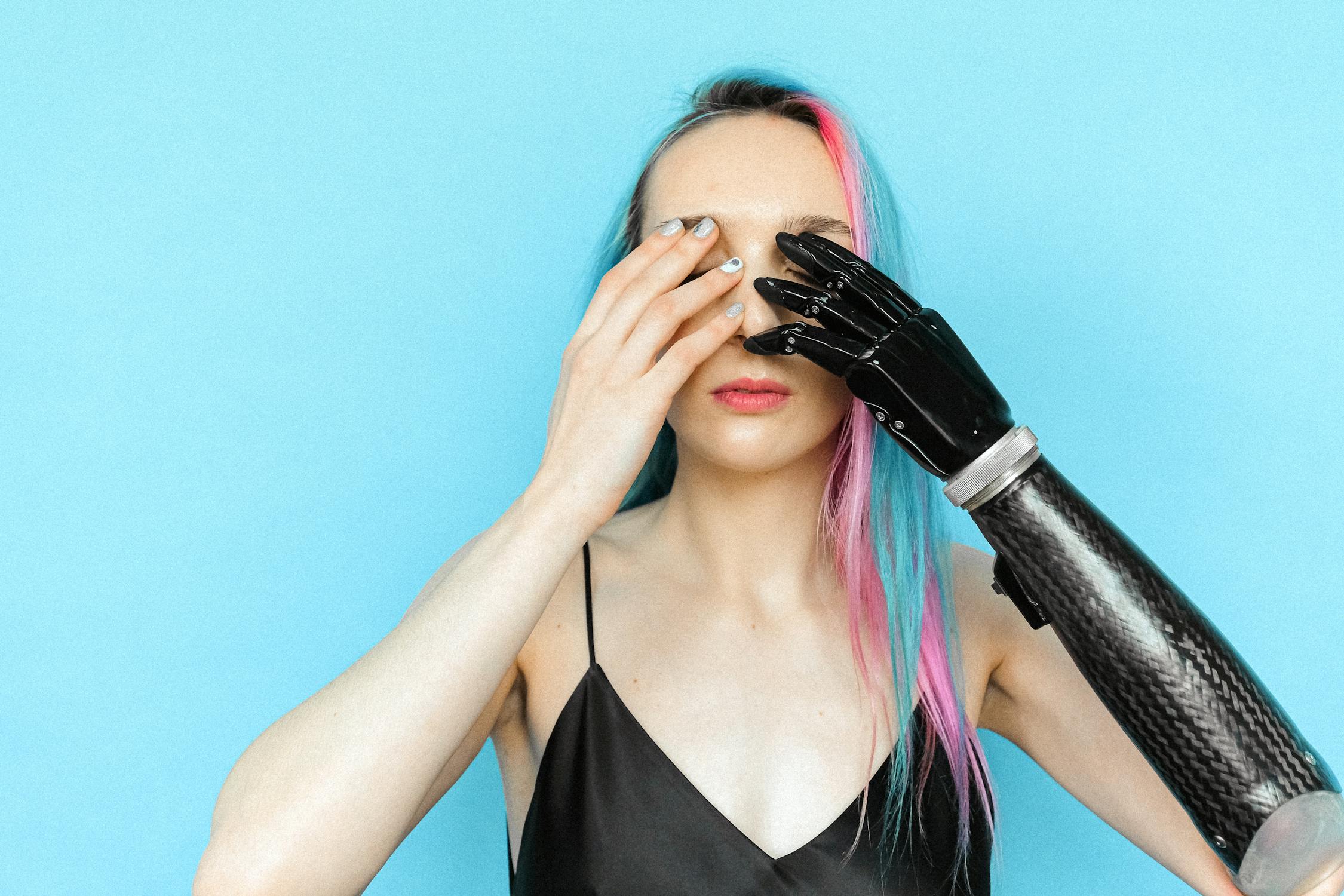Posted on May 05 2021
HOW DO WE BEGIN TO VIEW DISABILITY AND SELF CARE? HOW DO WE BEGIN TO VIEW DISABILITY AND SEXUAL WELL-BEING? HOW DO DISABLED TEENAGERS AND YOUNG ADULTS FIND THEIR WAY IN A WORLD WHICH ONLY CATERS SELF CARE AND SEX EDUCATION TO ABLE BODIED PEOPLE?
By Anusha Misra
Article exploring : Disability and self care practices, disability and independence, disability and sexuality, disability and boundaries, sexual communication, disability and digital communication, disability and logistics.
BACKGROUND
I just turned 23, and I noticed how I’ve become better at forming boundaries with myself, between myself and the world.
Okay, that’s a lie. Well, a semi-lie.
After three glasses of wine, I texted my ex some emo shit about how he’ll always be my home because I’m used to a broken home. You see, alcohol and boundaries definitely don’t mix.
Abhinav, if you’re reading this: I unsent the message. Damage control. Even Instagram knows how to take care of intoxicated, lonely women. Yet they still manage to get offended at the sight of nipples. In other words, Instagram is the ‘feminist’ man, demanding to be applauded for picking up the dishes. This is a common sight when it comes to my male family members. But that is not my point here.
My point is, baby steps. I’ll always be a work-in-progress, even 20 years from now.
Growing up in an able-bodied world can be tricky, and I’ve been trying to hold myself together not only since that drunk texting night, but since birth. I’d like to congratulate myself for turning 23, for reaching 23 amidst a worldwide pandemic. I’d also like to thank my privilege. After all, being able to be alive is a privilege.
We've all grown up in a world surrounded by non-disabled structures of productivity, self-love, friendships, relationships, sexuality, politics, and time. Meanwhile, disabled folks have been told their entire lives to walk better, speak clear, to simply be better.
A disabled child grows up with non-disabled ideals of success, of failure, of adequacy, and of inadequacy. They grow up listening to heteronormative stories of non-disabled men and women living their lives without any barriers of mobility, accessibility, and inclusion. As a result, the grown up, disabled child - who's now a disabled adult - teaches themselves standards of non-disabled self-care and love.
I was that disabled child.
Questioning
The able-bodied gaze limits me in more ways than I know. As I started taking solitary walks by the park outside my house where I grew up, all sorts of eyes would look at me and my feet. Some would be big out of curiosity. Some would be small out of unfamiliarity. Some would be pitiful with strained eyes. Some would be amused. Some would be wide-eyed, desperately searching for inspiration.
How do we live in a world with able-bodied mandates of sexuality, self-expression, sexual communication, agency to romance, playfulness, and casualness of desire - and break through these rigid structures? How do we love, heal, care for, and grow in our crippled bodies, the geography of our disabled skin, and embrace disabled joy in an able-bodied world?
SELF CARE AND LOVE
With some growth, I’m beginning to look at self-care in a different way than I looked at it when I was, say, 21. Self-care and love in mainstream media entails putting a face mask on and lighting a scented candle. Sometimes, it involves throwing a pool party and having friends over. Being a disabled child who struggled with non-disabled ideals of friendship, I grew up feeling lonely. When I couldn't live up to these standards of self-care, I began to feel inadequate. And I began to crave a sense of belonging. My peers in school and college wouldn’t want to go to public places with me because, whether unconsciously or consciously, they would perceive me as someone who requires physical support. Thus, I was labelled as a burden or as someone who was too effortful.
Self-care for disabled folks is vastly different from ‘easy-peasy, just throw on a face mask!’ or ‘go for a hot water shower!’, or the ever favourite, ‘Just hydrate yourself and all your problems will go away!’. Not all people have the access and privilege to execute self-care and hygiene related things - especially disabled people. Depending on our mobility and care, we might not be able to bathe when we want and/or how we want, and get the much needed privacy. Masturbation and sex then, becomes a privelege too. Some of us have caregivers who tend to be too intrusive or controlling. They might be unaware of the concept of boundaries and might not let us have much needed alone time (or as I like to call it, sexy time).
THE VARIOUS NUANCES OF DISABLED SELF CARE
I remember the time when I went shopping alone for lingerie. As my crutch navigated me forward, I began searching for the Otherness in people’s eyes, as I always do.
But as a then newly-single me put on my ‘pretty in pink’ lingerie in my hostel room, I felt infinite. I began to think of all the able-bodied men I had dated, who had only ever disempowered me. Able-bodied men in an able-bodied world not understanding my nuances of disabed feminist joy, the joy of visiting the grocery store alone, or taking myself out on a self-care date would mean going to my therapist - both physical and mental - rather than a spa. (Spas would probably be inaccessible anyway, financially as well as physically.)
Self-care for me, then, means something different entirely. It means stepping out as a disabled woman. It means having no inhibitions. It means feeling proud of my identity. It means exercising my muscles. It means talking to my therapist about my dysfunctionality and disability trauma. And last but not the least, it means forming clear and assertive boundaries with partners, with friends, and with able-bodied family members about what I can and cannot tolerate, and how they would have to stop patronizing me. This included communicating my sexual needs and constraints to my partner, having uncomfortable but necessary conversations, and telling my family members not to reveal my medical history or my disability to strangers who I didn’t even know me, describing it as a sad, sob story. Empowering myself and honouring my emotional energy, that is self-care for me.
DISABLED LOVE ONLINE IN A PANDEMIC
How do we begin to view disability and sexual well-being? How do disabled teenagers and young adults find their way in a world which caters to sex education only confined to one ability? How do we appropriately put forward our disabled sexual needs without coming on too strongly, being hypersexualized, or the other extreme: being de-sexualized?
As our lives have gone online during a pandemic, and so has love and sex. I’ve dated able-bodied men my entire life, and I’ve always been curious about sexting. How do I sext as a disabled woman? How do I inform my able-bodied significant other (who’s really into sexting, by the way) that the impossible sex positions he’s describing on text cannot be possible in real life because well, I’m…disabled? Does disabled-friendly feminist sexting exist, or is it just heteronormative able-bodied sexting? Am I a bad feminist? What is the intersectionality between sexting and disability? How do we meet somewhere in the middle? I’m not being too crude, am I?
This article has a lot of questions, I know. But they are important questions, nonetheless. Because they affect my life, and my community’s life.
And an answer would be to start a conversation. The beauty of dialogue and interaction is we can look outside our reality, outside our privileged bubble of ability and make space for others in our lives - no matter how different they are.
Anusha Misra is a 22 year old Psychology graduate from Lady Shri Ram College For Women, New Delhi and a columnist at Feminism In India. She is also the founder of Revival Disability Magazine. She has been featured in publications like The Hindu and Midday Mumbai. She likes to write on themes of Disability, Sexuality and Intersectional Feminism. Follow her magazine on instagram
SUPPORT INDEPENDENT FEMINIST MEDIA. SHOP NOW!



I like that you seem to draw energy and self-care from taking your power back and asserting your autonomy and pride to others. Although a lot of people like to take a break from educating others as self-care, which is extremely valid, I’m also like you, so I’m glad I’m not the only one who works that way :)